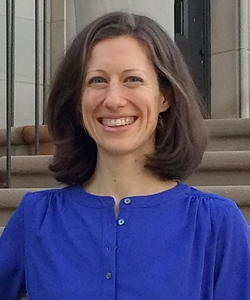Response: Language Barriers in the Pro-Life/Pro-Choice Debate

Lauren Seminack
March 28, 2017
March 28, 2017
If feminism is defined as the political, economic, and social equality of the sexes, is it possible for individuals to be feminist and pro-life? Did the march need to take a position on the divisive issue of abortion in its unity principles? What are the implications of the fact that the march advocated for religious freedom (most noticeably through support of Muslim women), which, for many religions, includes the freedom to exercise a pro-life stance?
Response: Language Barriers in the Pro-Life/Pro-Choice Debate

Lauren Seminack
March 28, 2017
Response: Pro-Life Feminism Is an Impossible Falsehood

Erin Matson
March 20, 2017
Response: The Missed Opportunity of the Women's March

Claudia Winkler
March 13, 2017
Response: What Susan Said

Susan Gallucci
March 9, 2017
Response: A Commission or a Commandment?

Leah Farish
March 8, 2017